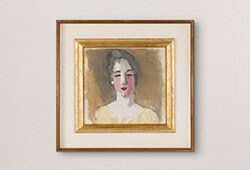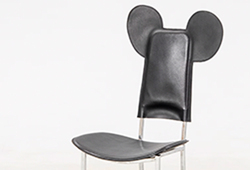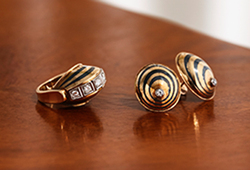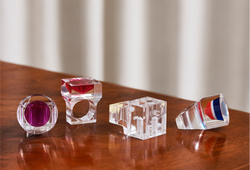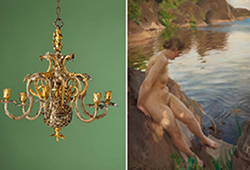A large Swatow dish, Ming dynasty, circa 1600.
Deep circular dish painted in turquoise, black, iron-red and green enamel with gently everted rim, painted in the center medallion with a scholar in a garden with an assistant carrying a vase with flowers. Behind the scholar a mythical creature in the shape of a buddhist lion. The decoration is encircled by a lappet band of flowers and branches, the cavetto painted with four large lobed reserves, two with birds perched amongst aster and camellias and two with lotus flowerheads, all between chilong dragon roundels on an iron-red diaper ground of cash and cross-hatch. The underside plain, the base and foot rim with sand grit. Diameter 38.5 cm.
The back with cracks.
Alkuperä - Provenienssi
From the Collection of Heidi Boyce Broström (1943-2022) and Dan Axel Broström (1915-1976).
Dan Axel Broström was the third-generation ship-owner in the prestigious Broström Company group. When he took over the firm in 1949 they had 18 000 employees.
The Canadian model and geologist Heidi was Dan-Axel Broströms third wife, the couple lived at the fashionable Särö, a few miles south of Gothenburg.
Näyttelyt
Compare: Collection of Sakamoto Gorō (1926-2016). Sotheby's New York, 17th March 2015, lot 41.
Kirjallisuus
Dishes from this series is included by Jorge Welsh in Zhangzhou Export Ceramics, The So-called Swatow Wares, 2006, no. 26, pp. 124-7.
Another dish of this design, the four roundels in the cavetto with the Chinese characters yu tang jia qi ‘the hall full of beautiful treasures’, is illustrated by Yoneyama Torataro in The Seikado Bunko Art Museum catalogue of Swatow Wares of the Seikado Collection, no. 34, p. 41.





